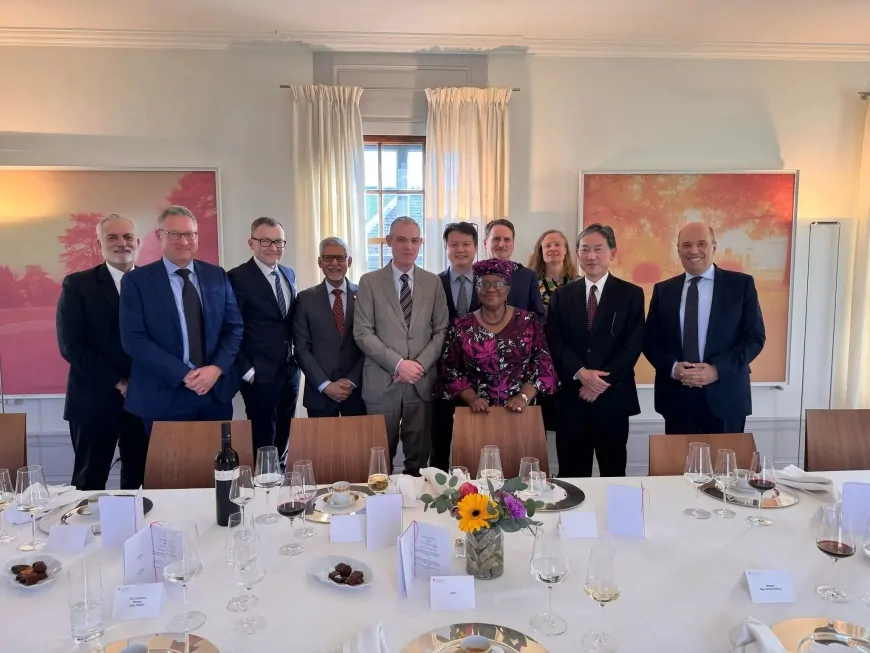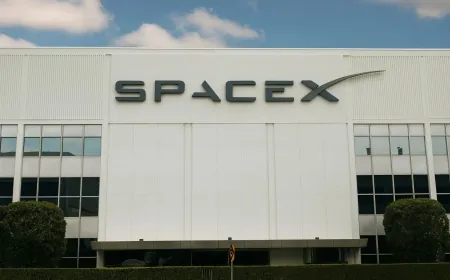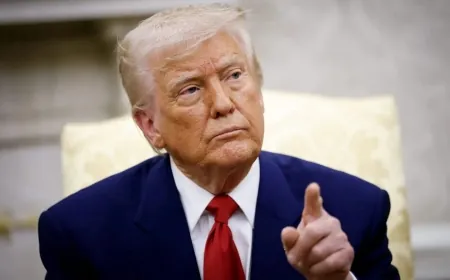WTO Chief Urges Dialogue Over U.S. Tariff Concerns to Avoid Trade Conflicts
WTO Director-General Ngozi Okonjo-Iweala calls for open dialogue instead of retaliation in response to U.S. tariff concerns. She emphasizes the importance of cooperation to maintain global trade stability amid rising tensions.

The head of the World Trade Organization (WTO), Ngozi Okonjo-Iweala, is calling for calm and open conversations as trade tensions rise between the United States and its global partners. Rather than responding with tit-for-tat tariffs, she believes the best way forward is to understand the U.S. perspective and work toward solutions through dialogue.
Speaking alongside former German Chancellor Angela Merkel at the WTO headquarters in Geneva, Okonjo-Iweala acknowledged the uncertainty caused by former U.S. President Donald Trump's recent tariff threats against key trade partners like Mexico, Canada, and China. These threats rattled financial markets, leaving businesses unsure about what’s coming next. Some tariffs were delayed soon after they were announced, adding to the confusion.
Despite the unpredictability, Okonjo-Iweala urged trade partners not to panic. “We need to listen to the U.S. and understand their concerns,” she said. “When the global trade system was set up 30 years ago, the U.S. agreed to low tariff rates—around 2.5%—to benefit both its people and the world economy. Now, they feel that approach no longer works for them.”
Rather than seeing this as a full-blown crisis, she described the situation as a disruption—one that can be managed through conversation rather than confrontation. “Let’s remember that 80% of global trade is still happening smoothly under the current WTO rules,” she pointed out.
Her message is clear: trade disputes don’t have to spiral into full-scale economic battles. Instead of escalating tensions with more tariffs, she encourages leaders to come to the table and find solutions that work for everyone.
At the heart of the issue are real people—workers, business owners, and consumers—who feel the ripple effects of these policies. From rising costs of everyday goods to uncertainty in industries that rely on stable trade agreements, the stakes are high. Okonjo-Iweala’s call for dialogue is a reminder that international trade isn’t just about policies and numbers; it’s about livelihoods and economic stability.
With the world more connected than ever, she believes that the best way forward isn’t through abrupt policy shifts or retaliation but through understanding, adaptability, and cooperation.
Also Read: China Rejects US Tariffs, Warns of Trade War Risks and Economic Impact
































































